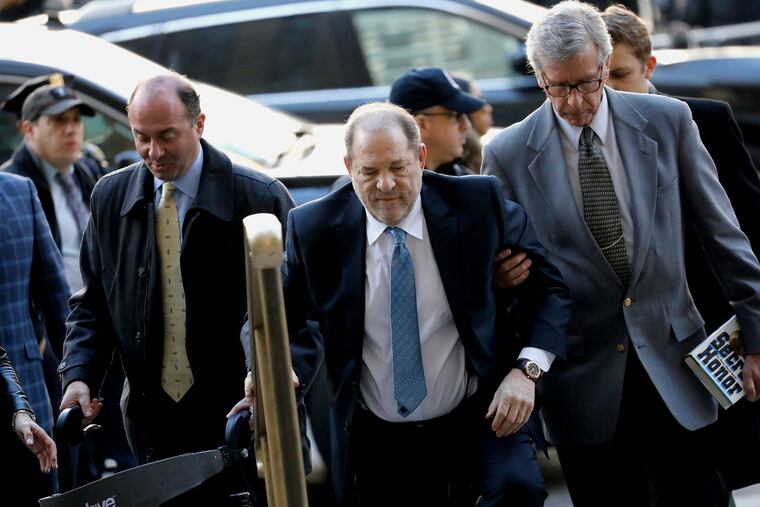Harvey Weinstein’s half-conviction is a full win for prosecutors | Opinion
The charges on which Weinstein was acquitted probably played a meaningful role in his ultimate conviction.

Don’t let the appearance of a split verdict in the Harvey Weinstein case mislead you: the prosecutors’ decision to charge Weinstein with being a serial sexual predator was a success despite the jury’s decision to acquit on those charges — even as it convicted him of two felony sex crimes, including rape.
The strategic advantage of charging Weinstein as a predator was always that it would enable the prosecution to introduce more evidence, including evidence of sexual assaults from women who were not the primary victims in this case. That extra testimony very likely contributed to the jury’s decision to convict Weinstein on two felony charges. It bolstered the primary victims’ testimony, notwithstanding the absence of physical evidence and other challenges associated with their cases.
The important legal background here is that, in a criminal case — including in a case of sexual assault — testimony is ordinarily limited to evidence about the specific criminal conduct alleged. If the prosecution wants to introduce evidence of other bad acts by the defendant, it needs to have a valid legal reason to do so, such as a pattern of conduct. We want juries to convict on the actual criminal charge, not because they think the defendant is generally an immoral person or prone to crimes in the abstract.
In addition to showing a pattern of conduct, another way to introduce evidence of prior bad acts in a New York state rape trial is to allege that the defendant is a predator who has committed a series of similar crimes. This charge against Weinstein was what allowed the actress Annabella Sciorra to testify that she was raped by Weinstein. (This alleged crime could not be charged on its own because it occurred long enough ago that the statute of limitations had run out.)
It’s always strategically desirable for the prosecutor to get the jury to hear about prior bad acts by a defendant. But there was a special reason to get that evidence introduced in the Weinstein case. The cases of the two victims whose rapes constituted the primary charges against Weinstein were tricky. In neither case was there any physical evidence. And in both cases, Weinstein’s lawyers insisted that the women continued to have social, professional, and sexual contact with Weinstein even after the rapes occurred.
Of course, as a matter of principle and logic, there is no reason these factors should cut against Weinstein’s guilt — as the jury properly found. But in the real world, prosecutors worry about bringing rape charges under circumstances like these. And as has been well-publicized, the New York District Attorney’s Office itself went through a bumpy process before bringing these charges, having initially decided in 2015 not to prosecute Weinstein despite having an audio recording of him apparently admitting to a sexual assault.
The final verdict in the Weinstein case was technically split; the jury convicted on the primary rape charges but not on the sexual predation charges. Yet it would be a mistake to think that this means the jury rejected the evidence of Weinstein’s past conduct altogether. Even if the jury wasn’t fully convinced that there was evidence to prove beyond a reasonable doubt that he committed the other rapes, the overall weight of the evidence may well have strengthened the credibility of the primary victims.
If the jury verdict is seen as a compromise among the jurors, then the sexual predation charges may have functioned as leverage for those who wanted conviction on all counts. Such compromises aren’t exactly proper as a matter of formal legal reasoning, but they are not uncommon in the real world of jury deliberations, and prosecutors want to give as much material as possible to those jurors who support conviction.
Civil libertarian critics of this trial may argue that the sexual predation charges unfairly harmed Weinstein. Activists against sexual violence may believe that the sexual predation charges helped get a conviction and were, therefore, more than justified.
Both sides of this debate, however, would be acknowledging that the charges on which Weinstein was acquitted probably played a meaningful role in his ultimate conviction. The result now enters the history books — at least until Weinstein files his appeal.
Noah Feldman is a Bloomberg Opinion columnist and host of the podcast “Deep Background.” He is a professor of law at Harvard University and was a clerk to U.S. Supreme Court Justice David Souter. His books include “The Three Lives of James Madison: Genius, Partisan, President.”